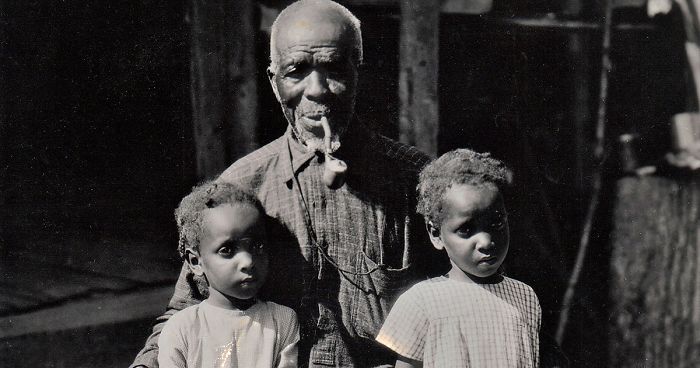
Heartbreaking Interview Given By The Last Slave Ship Survivor In 1930s Was Made Public Last Year
On one warm and unsuspecting day of July in 1860, a schooner named Clotilda, with the Captain William Foster and 110 African slaves on board, arrived in Mobile Bay, Alabama. Clotilda was the last known U.S. slave ship to bring captives from Africa to the United States. Among more than one hundred enslaved African people, there was also Cudjo (sometimes spelled as Cudjoe) Kazoola (or Kossula) Lewis – the last known survivor of the Atlantic slave trade between Africa and the United States.
More info: History
Image credits: vpam
Cudjo Lewis, originally named Kossula (American listeners would later transcribe Cudjo’s given name as “Kazoola”), was born around 1840 into the Yoruba tribe, in the Banté region, which today belongs to the West African country of Benin. His father’s name was Oluwale (or Oluale) and his mother’s – Fondlolu. Kossula had five siblings and twelve half-siblings, who were the children of his father’s other two wives.
Image credits: Archive
Mobile Bay and wreckage of slave ship Clotilda are pictured above.
In the spring of 1860, when Cudjo was only 19 years old, he was taken as a prisoner by the army of the Kingdom of Dahomey. After the Dahomian tribe captured him, Cudjo was taken to the coast. There, he and more than one hundred other men and women, were sold into slavery and crammed onto the Clotilda – the last slave ship to reach the shores of the continental United States. The captives were brought to Mobile Bay, Alabama. The international slave trade was not legal at that time already for more than 50 years. Along with many European nations, the U.S. had outlawed the practice in 1807, but Lewis’ journey proves how slave traders went around the law to continue bringing over human cargo. However, to avoid detection of the authorities, the captors of the slaves snuck them into Alabama at dark hours and made them hide in the swamp for several days. To get rid of any hard evidence, they put the 86-foot Clotilda on fire on the banks of Mobile-Tensaw Delta. Ship’s remains are believed to be uncovered in January 2018.
Image credits: theimmagine
If it wasn’t for Zora Neale Hurston – an anthropologist and a known figure of the Harlem Renaissance – we may have never heard Cudjo’s story from Cudjo himself. Some 60 years after the abolition of slavery, she made an amazing discovery and located the last surviving captive – Cudjo – of the last slave ship to bring African slaves to the United States. Zora went on to conduct numerous interviews with Cudjo, but struggled to get them published. One of the main reasons for rejection, was that Zora refused to alter Cudjo’s words for them to fit into the frames of the standard American English. At that time, her anthropological interviews were often seen as controversial due to the use of vernacular dialogue. Even some black American thinkers thought that the use of vernacular might enforce the caricaturist views of the black people inside the minds of the white people. Zora wasn’t the one to back down, and the book with interviews with Cudjo was only published on May 2018 and it was named Barracoon: The Story of the Last “Black Cargo”.
Image credits: cudjolewisfamily.org
Zora’s book tells the story of Cudjo Lewis and his life. The heartbreaking narrative provides a first-hand look at the trauma enforced by the slavery. After Cudjo was abducted from his home, he was forced onto a ship with hundreds of strangers. They wound up spending several months together, only to be separated in Alabama to go to work in different plantations. “We very sorry to be parted from one ’nother,” Lewis recalled. “We seventy days cross de water from de Affica soil, and now dey part us from one ’nother. Derefore we cry. Our grief so heavy look lak we cain stand it. I think maybe I die in my sleep when I dream about my mama.” Cudjo also describes what it was like to arrive on a plantation where no one could speak his language and explain to where he was, what was going on, what was he ought to do. “We doan know why we be bring ’way from our country to work lak dis. Everybody lookee at us strange. We want to talk wid de udder colored folkses but dey doan know whut we say.”
Image credits: Amy Walker
Understandably, Mr. Lewis expected to receive compensation for being captured and forced into slavery, and was angry to find out that the long-awaited emancipation didn’t come with the promise of “forty acres and a mule,” or any other kind of reparations. Bitter and frustrated, Cudjo, together with a group of 31 other freepeople saved up enough money to buy land near the state capital Mobile, which they called Africatown. Today, the monument of Cudjo Lewis proudly stands in Africatown, Mobile, Alabama, reminding of the struggles its people endured. It was sculpted back in 2016 by April Terra Livingston and is located in front of the Union Missionary Baptist Church.
44Kviews
Share on FacebookI'm so glad this is finally being published--I wish Zora Neale Hurston had received the respect and accolades she is getting now when she was alive. And I wish Cudjoe Lewis had received his mule and five acres.
I am pleased to have this information to read,it is important to know and what the people went through, I am disgusted by the slave trade, for those racist should see that the slaves did not come to the u.s.a. to cause trouble, put yourself in their shoes, how would they like to be removed from their homeland to become slaves !!!
@sharron lynn parsons: "for those racist should see that the slaves did not come to the u.s.a. to cause trouble" You do realize that he and all the others were sold as slaves BY Africans, right? The slave trade didn't care what your race was (there were Irish and German slaves as well), all the slave trade cared about was hard-working slaves.
Load More Replies...I'm so glad this is finally being published--I wish Zora Neale Hurston had received the respect and accolades she is getting now when she was alive. And I wish Cudjoe Lewis had received his mule and five acres.
I am pleased to have this information to read,it is important to know and what the people went through, I am disgusted by the slave trade, for those racist should see that the slaves did not come to the u.s.a. to cause trouble, put yourself in their shoes, how would they like to be removed from their homeland to become slaves !!!
@sharron lynn parsons: "for those racist should see that the slaves did not come to the u.s.a. to cause trouble" You do realize that he and all the others were sold as slaves BY Africans, right? The slave trade didn't care what your race was (there were Irish and German slaves as well), all the slave trade cared about was hard-working slaves.
Load More Replies...
 Dark Mode
Dark Mode 

 No fees, cancel anytime
No fees, cancel anytime 


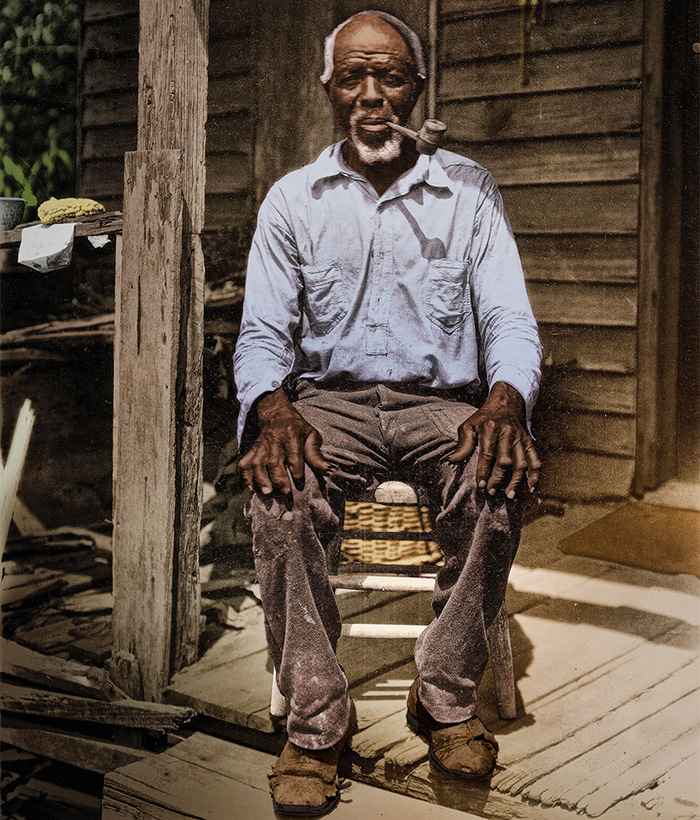
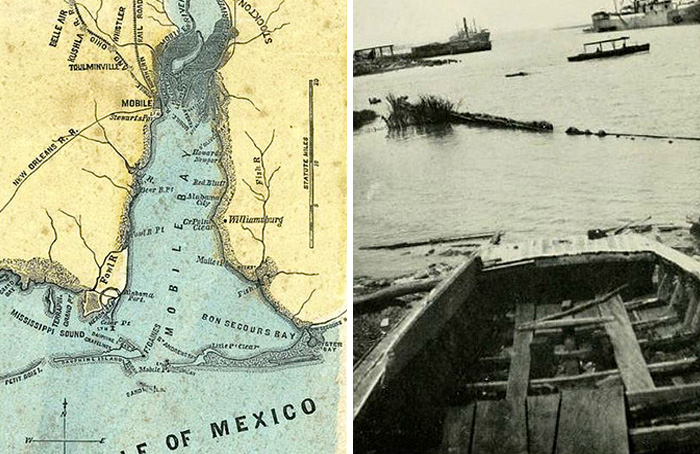
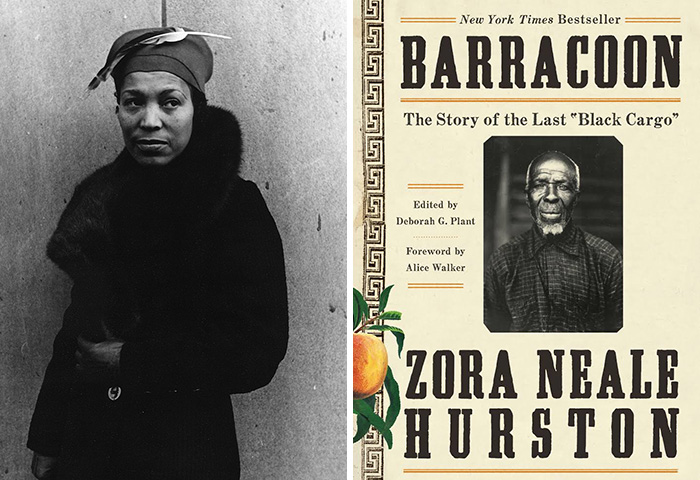
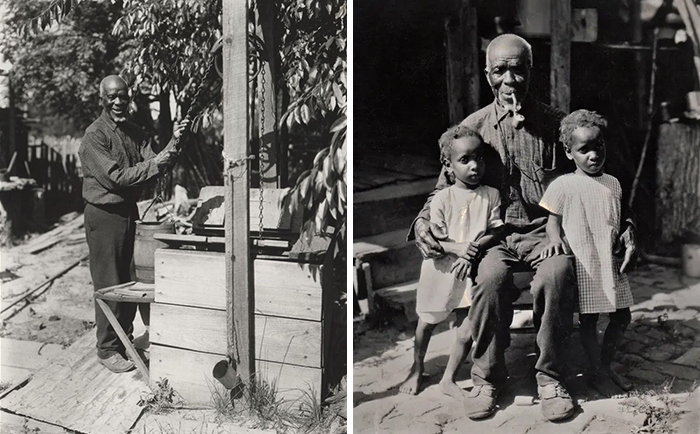































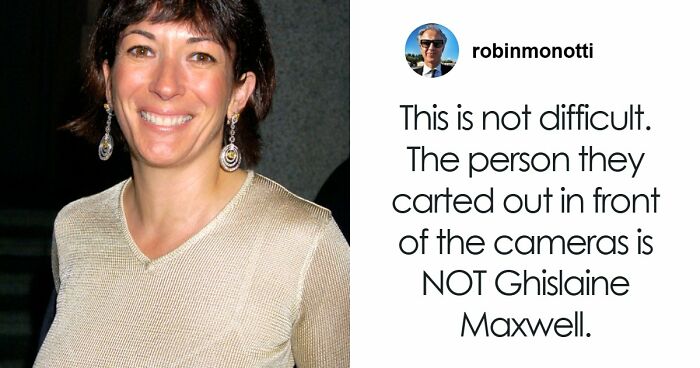

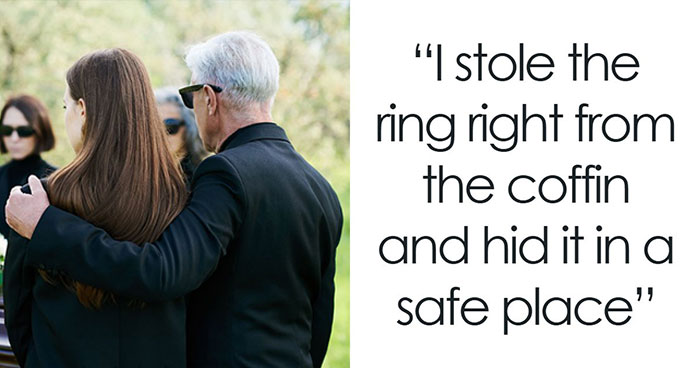










318
40